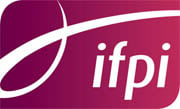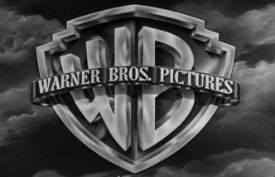[Most Recent Entries] [Calendar View]
Tuesday, October 7th, 2014
| Time | Event |
| 11:16a | NetNames Anti-Piracy Chief Moves to IFPI
Established as Group NBT in 1995, the company was renamed NetNames in 2013 and shortly after grabbed dozens of headlines after publishing a major study into online piracy. Commissioned by NBC Universal and titled ‘Sizing the Piracy Universe‘, the study mapped piracy volumes and prevalence around the world. NetNames’ found that piracy is both “tenacious and persistent”, with a penchant for consuming increasing amounts of Internet bandwidth every year. The report was overseen by Dr David Price, then Director of Piracy and Counterfeit Analysis at NetNames. Price also presided over the publication last month of NetNames’ latest piracy study which focused on the role played by credit card companies in the cyberlocker space. Published exactly a year after the NBC study, ‘Behind The Cyberlocker Door: A Report How Shadowy Cyberlockers Use Credit Card Companies to Make Millions‘ was commissioned by the Digital Citizens Alliance (DCA), ostensibly to protect consumers. DCA doesn’t openly reveal its sources of funding but the report has all the hallmarks of an entertainment industry-focused study. Previously, Price was the chief of Piracy Intelligence at Envisional and the head of a study claiming to be the first to accurately estimate the amount of infringing traffic on the Internet. Now it appears that Price’s work has received the ultimate compliment from one of the most powerful entertainment industry organizations on the planet.
According to an amendment tucked away on his Linkedin profile, Price – who has a doctorate in Criminology from the University of Cambridge – is now working for the IFPI as their Head of Anti-Piracy Research and Analysis.  In recent years Price has maintained a clear anti-piracy stance, which will obviously suit IFPI. He has participated in discussions calling for government action against piracy and regularly uses content-industry friendly terms such as “stealing” to describe unauthorized copying. TorrentFreak contacted NetNames’ PR company for a comment on Price’s departure but at the time of publication we were yet to receive a response. IFPI London, where the organization’s anti-piracy operations are based, also did not immediately respond to a request for comment. Source: TorrentFreak, for the latest info on copyright, file-sharing and anonymous VPN services. |
| 3:57p | Revealed: Warner Bros. Uses “Sophisticated Robots” to Fight Piracy
As part of their $80 million settlement agreement with the movie studios, the file-hosting service also let the counter-suit over Warner Bros. alleged DMCA-abuse go. This meant that the true workings of Warner Bros. takedown systems remained secret, since many of the court filings were heavily redacted. Arguing that the public has the right to know how Warner operated, the Electronic Frontier Foundation therefore asked the court to unseal the records. Warner Bros. objected to this request, arguing that the effectiveness of their anti-piracy technology would be undermined by a public disclosure. However, two weeks ago U.S. District Judge Kathleen Williams ordered that it’s in the public interest to unseal the information. The first set of unredacted documents were published by Warner Bros. yesterday evening. While it’s only a fraction of all sealed material, we can now see what the movie studio was so eager to keep out of the public eye. Most of the unsealed information deals with Warner’s automated DMCA takedown tools. In the court filings these are described as “robots” which are programmed to mimic human behavior. “Warner uses a system of computer programs known as ‘robots’ to help search link sites. for links to infringing copies of its content. These programmable robots are highly sophisticated and can effectively mimic the search a human would conduct, except faster,” Warner explains.  This isn’t a big surprise, but Warner clearly preferred to keep its automated takedown tools out of the public domain. The unsealed information further shows that the script in question searches 200 hand-picked link sites for specific keywords. A takedown notice then goes out to the source site of this link. The actual content was never downloaded and reviewed, nor were the titles checked to see if Warner actually owned the content in question. “Its search process relied on computer automation to execute programs and did not involve human review of the file titles, page names or other overt characteristics before issuing a takedown notice,” an unredacted court order reads. “And because the files were not reviewed, neither Warner’s robots nor its employees made a determination whether there were legal uses for the files.” Despite revealing details of its “robots”, Warner still redacts how many employees its anti-piracy division employs. Unfortunately for them they forgot to black out one reference. According to an unredacted court order Warner employed seven people in its anti-piracy division at the time. All in all it appears that most of the redactions revealed up until now were meant to keep the anti-piracy operations shrouded in mystery. There is not much that can actually hurt the company’s anti-piracy efforts. While it’s now clear that Warner’s DMCA takedowns were highly automated, there is still a lot more information to unseal. Many questions about specific errors also remain unanswered, including the fact that the studio intentionally targeted the open source JDownloader software. Whether future revelations will lift more of the veil will become apparent in the months to come. Source: TorrentFreak, for the latest info on copyright, file-sharing and anonymous VPN services. |
| << Previous Day |
2014/10/07 [Calendar] |
Next Day >> |


